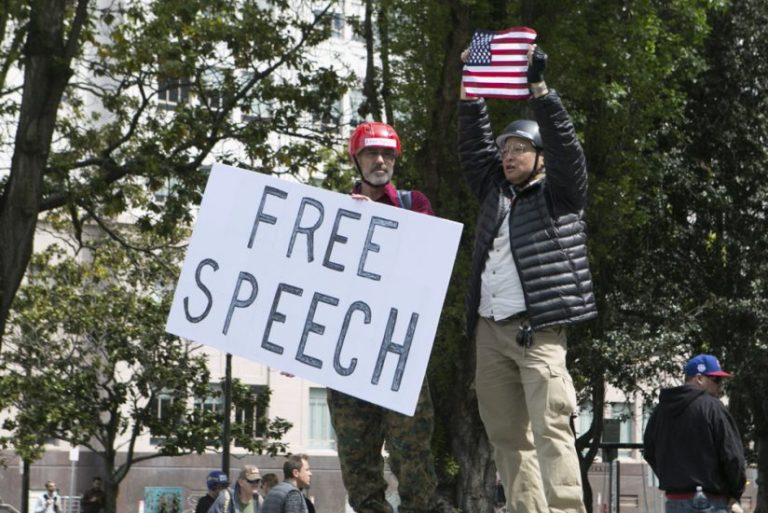Summary of State Laws Protecting Political Dissidents Against Discrimination
If you are a political dissident and have experienced employment-based adverse treatment (including threats) because of your beliefs, the Free Expression Foundation may be able to provide you with important legal information to help you fight back.
One source of your legal rights may be your employment contract, if you have one. This includes collective bargaining employment contracts such as those negotiated by unions. Because union members frequently engage in political activity, union contracts commonly contain express prohibitions against political discrimination.
If you do not have an employment contract, you are almost certainly an “at-will” employee. The general legal rule is that an employer may fire an at-will employee for any reason or no reason at all, unless the employee falls into a protected class such as those based on race or gender, and persons holding dissident political views are not a protected class.
There are, however, 18 state or local laws (according to FEF’s latest research) that, to a greater or lesser extent, provide potential redress for an employer’s adverse action against an at-will employee based on the employee’s political beliefs or activities. It bears emphasis that these laws differ greatly from each other. Some have been around for many years; some are quite new. Some are broad in scope and expressly protect the employee’s First Amendment rights; others are drawn narrowly, and arguably apply only to specific contexts relating to specific events, such as elections. Some provide only for criminal penalties; some also provide a civil cause of action for damages. Some have been interpreted by their state courts many times; some have never been interpreted.
California [CAL. LAB. CODE §§ 1101 and 1102]
Colorado [COLO. REV. STAT. ANN. § 24-34-402.5]
Connecticut [CONN. GEN. STAT. § 31-51q]
District of Columbia [D.C. CODE § 2-1402.01] and [DC Guide}
Louisiana [LA. REV. STAT. ANN. §§ 23:961 and 23:962]
Minnesota [MINN. STAT. ANN. § 10A.36]
Missouri [MO. ANN. STAT. § 115.637(6) and § 130.028]
Montana [MONT. CODE ANN. § 39-2-904 and MONT. CONST. art. 2, § 4]
Nebraska [NEB. REV. STAT. ANN. § 32-1537]
Nevada [NEV. REV. STAT. ANN. § 613.040]
North Dakota [N.D. CENT. CODE ANN. § 14-02.4-03]
New Mexico [N.M. STAT. ANN. § 1-20-13 and § 3-8-78(A)]
New York [N.Y. LAB. LAW § 201-d]
South Carolina [S.C. CODE ANN. § 16-17-560]
Utah [UTAH CODE ANN. § 34A-5-112]
Washington [Seattle only; SEATTLE, WASH. MUN. CODE. § 14.04.040]
West Virginia [W. VA. CODE ANN. § 3-8-11(b) and § 3-9-15]
Wisconsin [Madison only; MADISON, WIS. MUN. CODE § 39.03]
If you have been the victim of adverse treatment by your employer based on your political beliefs or activities, FEF will try to help to the degree it is able. The help FEF can offer will depend on the particular facts of your case, the jurisdiction whose laws apply, and the resources FEF has available. At a minimum, however, FEF will consult with you for free, a consultation that may include speaking with an attorney acting on FEF’s behalf.
If you found this information useful, please consider making a small tax-deductible donation to the FEF. Every dollar counts in our fight to keep Free Expression free. Click the DONATE button at the top right corner of this page, and thank you!
*** IMPORTANT DISCLAIMER***
Information herein and throughout this website is for educational purposes only and does not constitute legal advice directed towards individuals, groups, or organizations.
FEF does maintain relationships with lawyers, law firms, and other experts throughout the United States and can help direct people towards such resources and, to an extent, serve in an advisory capacity. But the FEF is not, in any way, a law firm or legal partnership.
The FEF recommends that legal advice should always be obtained by a qualified attorney licensed to practice law in the relevant jurisdiction.




